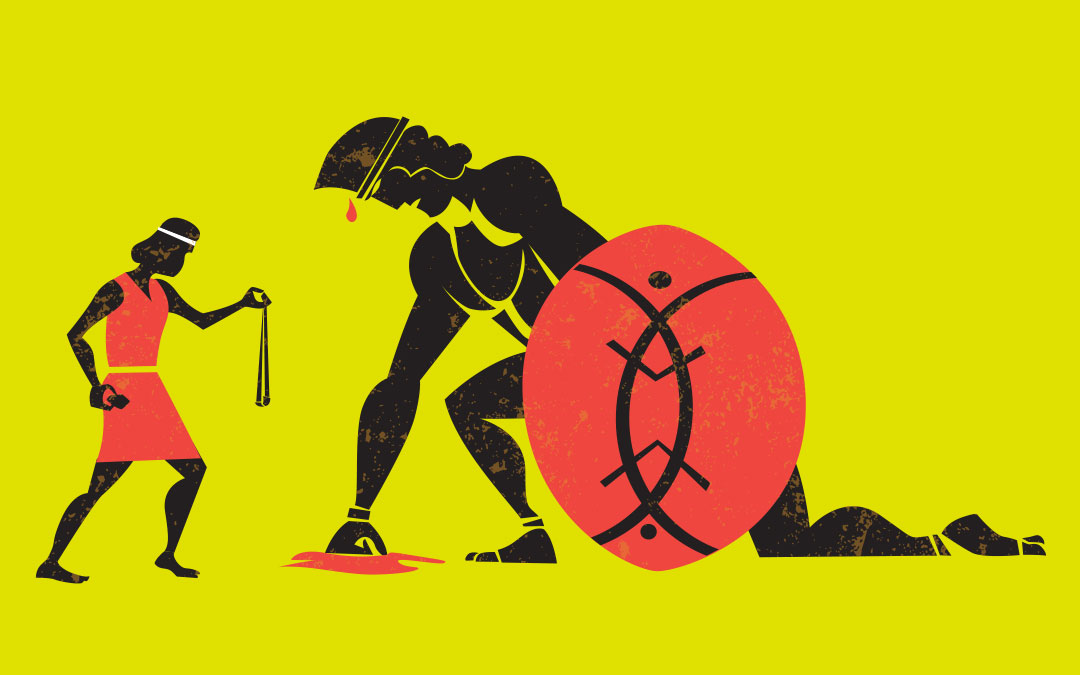King Saul thought Goliath was too big to fight—but small and humble David thought Goliath was too big to miss.
As the story of David and Goliath so clearly shows, being the small guy isn’t always such a bad tactic. It’s an analogy akin to the food industry today, where big food giants are swiftly being challenged—and in some cases, even being taken down—by little guys offering hand-crafted artisanal products.
While the big brands are rushing to update their business and marketing strategies to win over this artisanal space booming with potential, the small, nimble brands are demonstrating their ability to come out on top.
The David Brands Are Tech-Savvy, Clever, and Nimble
Since the artisan trend exploded, consumers have shifted more than $17 billion of their spending dollars from large companies to smaller, artisan brands. How have these smaller brands been found? For starters, technology has made it possible for brands to find their voice with consumers. With millennial consumers shifting their habits by supplementing in-store shopping with online shopping, technology has had a big hand in helping millennials find the smaller brands and products they’re seeking.
While these small artisan brands do not have large marketing budgets, they’re winning over tech-savvy millennial consumers through digital means like social media and modern websites. The “David” brands are succeeding through narrowcasting their audiences and leveraging clever and resourceful targeting practices as opposed to the mass appeal only the giants can provide. Etsy and Amazon Handmade have also added to the ease in which consumers can find the high-quality, hand-made items they are craving, helping to make artisan brands within reach.
Retailers of every variety are embracing the specialty trend and looking for brands that will delight their consumers with differentiated offerings. While Starbucks, Whole Foods and Sprouts have always delighted shoppers looking for something exciting and new, today traditional accounts including CVS, Kroger, Target and even Costco are developing captive and artisan brand relationships to meet this new groundswell of demand.
The Goliaths Are Fighting Back
The Goliath food giants are re-equipping themselves to fight back. Many large brands have jumped on the artisan bandwagon and have begun creating smaller brands under their umbrella and marketing the products as “artisan” or “hand-made.”
Other big bands are opting to purchase small artisanal brands instead of manufacturing craft products on their own. For example, Unilever recently purchased the popular direct-to-consumer brand Dollar Shave Club, who competes directly against giants like Gillette, and Kellogg bought protein bar brand RXBAR, effectively jumping on the health-conscious trend.
Who Will Win?
Consumers are seeking transparency, quality and authenticity from the brands they interact with and purchase from. Brands, from the Davids to the Goliaths, need to closely listen to consumers to determine their needs and earn their loyalty not only in the products—but in the experiences—they create.
Who will ultimately win the David and Goliath fight? While that’s up for the consumers to decide, we are betting there will be more than a few independent artisan brands in every category that gain national prominence by moving quickly to gain traction with millennial shoppers wherever they chose to shop, building their brand experience and scale accordingly with the best national accounts.

